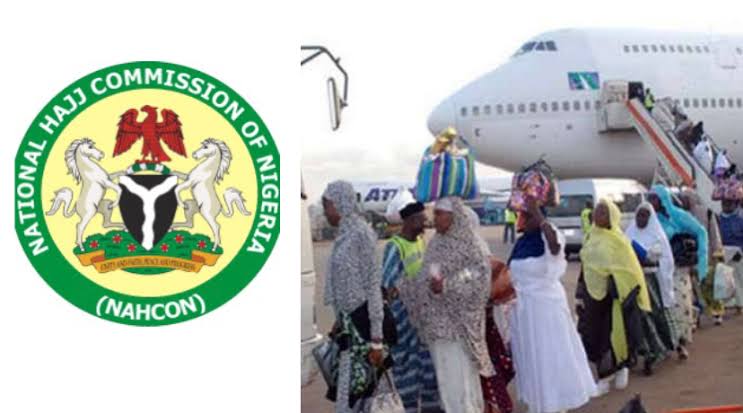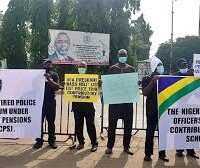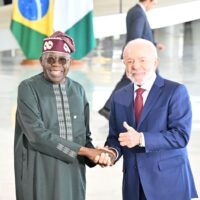By Aliu S. Momodu
For millions of Nigerian Muslims, the annual pilgrimage to Mecca is a journey of a lifetime. It is a deeply spiritual experience that requires immense planning and resources which is a task entrusted to the National Hajj Commission of Nigeria (NAHCON). This government agency was created to be a beacon of integrity in ensuring a smooth and dignified experience for all pilgrims. Instead of fulfilling its noble purpose, NAHCON has become synonymous with scandal and mired in a recurring cycle of financial allegations and mismanagement.
Nigeria’s leading anti-graft agencies, including the Economic and Financial Crimes Commission (EFCC) and the Independent Corrupt Practices and Other Related Offences Commission (ICPC), have repeatedly documented and investigated financial impropriety within the commission. These investigations, often highlighted in national media outlets like The Punch and Premium Times, reveal a disturbing pattern of systemic rot that compromises the welfare of pilgrims and erodes public trust.
A particularly glaring example is the N90 billion Hajj subsidy scandal from 2024. This investigation, which led to the interrogation of top NAHCON officials, including then-Chairman Jalal Arabi, exposed a range of unislamic practices. The EFCC uncovered a pattern of gross overpayment of allowances to NAHCON officials in 2024. The anti-corruption agency noted that while the chairman was entitled to a specific allowance, he allegedly received a significantly higher amount. Similarly, other commissioners and directors were found to have received allowances far exceeding their official entitlements. For instance, directors and the chief of staff, who were only entitled to SAR2,550, allegedly received SAR30,000 each. The investigation also raised serious questions about the use of public funds through large, unaccounted cash withdrawals. A document cited by The Punch detailed the withdrawal of millions in Saudi Riyals with no proper record of how the money was spent. Additionally, NAHCON has been accused of paying for services that were never rendered. For example, a significant amount of over SAR20.6 million was refunded by the Saudi Arabian government for services not provided to Nigerian pilgrims. Despite this, the commission allegedly paid a consultancy fee to a company for these same non-existent services.
Beyond the Hajj subsidy scandal, other reports have highlighted a broader culture of financial malfeasance. The EFCC has uncovered fraudulent contracts and “ghost projects,” such as paying estacodes to staff for “study tours” that never took place. These instances of paying for services not rendered and for non-existent tours point to a systemic issue of siphoning public funds under the guise of official expenses.
The persistent nature of these allegations has led to concrete action and further scrutiny. In the wake of the N90 billion scandal, President Bola Tinubu sacked the then-Chairman, Jalal Arabi, less than a year into his tenure. The dismissal came as anti-graft agencies continued their investigations, which reportedly led to the recovery of 314,098 Saudi Riyals from the chairman and other ranking officials. A House of Representatives ad-hoc committee, after its own inquiry into the 2024 Hajj, found NAHCON guilty of a lack of transparency and described its financial management as “very dirty.”
Alarmingly, the cycle of alleged financial impropriety has not ended with the change in leadership. Following the conclusion of the 2025 Hajj operations, new reports of corruption and mismanagement have surfaced. The EFCC has again arrested and questioned several top officials, including the Commissioner of Policy, Personnel and Finance (PPMF) and the Director of Finance and Accounts (DFA), over alleged financial misconduct. According to media reports, no fewer than eight officials were arrested over allegations of mismanaging funds, with two reportedly released after refunding misappropriated money. At least six senior officials remain in custody for failing to do the same. The investigation now reportedly involves suspected financial impropriety exceeding N50 billion, with a focus on expenditures for accommodations, tents, and allowances that were allegedly made without proper presidential approval.
The persistent nature of these allegations and the frequent intervention of anti-corruption agencies underscore a fundamental problem within NAHCON and undermines the pilgrimage. This is not a matter of isolated incidents but a recurring pattern of misconduct that has plagued the institution for years. The repeated shuffling of leadership and the sacking of officials in the wake of these scandals further reinforce the notion that the commission has become a fertile ground for pecuniary aberration.
The corrosive effect of these corrupt practices extends far beyond financial loss. It undermines the very purpose of NAHCON and compromises the welfare of the pilgrims it is meant to serve. The dignity and seamlessness of the Hajj, which the commission is mandated to ensure, are often subverted by the self-serving actions of some of its officials. As long as this culture of impunity persists, NAHCON will continue to be viewed not as a facilitator of faith, but as a cesspool of corruption. This is detrimental to its dignity as a foremost islamic organization.
Aliu S. Momodu is an advocate of good governance.






